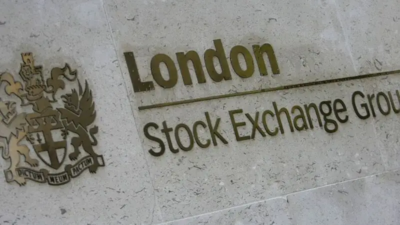Would you trust a robot with your finances?
Even before the rise of AI, human tasks were becoming increasingly more automated.
Turn back the clock 50 years, and whether you were in a bank, a station, or a factory, you’d see more employees performing jobs now done by machines with 2008 widely cited as the birth year of automated financial advisory services, also known as robo-advisors.
Before then, professional software did exist, but the late 2000s saw the founding of the world’s first publicly-available robo-advisor site, known as Betterment.
According to Investopedia, the robo-advising industry has since undergone a period of “explosive growth”, and client assets managed by robo-advisors are expected to reach $3 trillion, or €2.78 trillion, by the end of 2023.
By 2027, this number is forecast to hit $5 trillion worldwide.
What exactly do robo-advisors do?
As there are a range of robo-advisors to choose from nowadays, there’s not a one-size-fits-all explanation for how they work, but we can start by focusing on their most well-known function: Investment portfolio management.
When you sign up for a certain robo-product, you’ll be asked to input information about yourself, which will generally focus on areas such as your risk aversion, your goals, and the amount of time you want to give to your portfolio.
Based on these responses, the software will then be able to create a tailored investment plan, although different products have different levels of personalisation and automation.
Robo-advisors are often a good option for busy people who are new to the world of investing, as the algorithms can do much of the heavy lifting for you.
How much do they cost?
HyipScan.Net Business asked Matthias Fischer, professor in Banking and Finance at Nuremberg Tech University in Germany, what advice he would give to people using robo-advisors for the first time.
One tip is to know the level of risk you are signing up for (a higher stock-to-bond ratio in your portfolio is a bigger gamble), but Professor Fischer also told investors to watch out for high fees.
Whilst some companies don’t charge a set amount for using their robo-advisors, most firms will ask for a management fee, meaning a percentage of your assets will be deducted from your account at regular intervals.
There’s also another added layer of expense to think about, which is how much you’ll pay to exchange-traded fund (ETF) companies.
In simple terms, an ETF is a basket of different investments such as stocks, bonds, and commodities, and this bundle is owned by a provider.
Investors (such as those using robo-advisors) can buy a share of that basket and earn dividends on it, but you’ll be required to pay a fee.
That said, ETFs usually have lower charges than other types of funds, and the overall cost of using a robo-advisor is generally far less than you would pay when seeking human advice.
As a result, many supporters of robo-advisors say they have the potential to democratise financial guidance and reduce inequality.
Marie Brière, head of Investors’ Intelligence & Academic Partnership at Amundi Investment Institute in France, said that robo-advice is more financially accessible than traditional advice and explained that the software tends to be more effective for the less wealthy.
This is because the “investors tend to have low equity investment” to begin with, she said, which means the robot can add greater benefit.
Should you trust the advice?
One of the key factors that will determine the growth of the robo-advising industry is consumer confidence.
At the moment, several studies attempt to measure how much faith investors truly have in automated financial advice, but trust levels will likely rise as more of the tech-savvy generation begins to invest.
Providing a detailed explanation of the workings of robo-advisor decisions is an important way to improve user confidence, according to Brière.
What’s more, using automated advisors actually carries less risk than speaking to humans, she said.
“Robo-advisors [...] are indeed less prone to biases than human advisors,” Brière said. “For example, some research has shown that young people and women are often less well served by their human financial advisors.”
According to the Certified Financial Planner (CFP) Board of Standards, only 23.6% of all CFP registered advisors in the US in 2022 were women, and only 1.9% were Black.
Given these disparities, some argue that the advice offered to underrepresented groups will be less tailored to their specific needs.
Scott Smith, Director of Advice Relations at Cerulli Associates, agreed that robo-advisors are a less risky option for investors because they have “no subjective emotional overlay”, meaning they won’t act on intuition.
That said, he explained that once Investments get larger, robo-advisors have their limitations, as it’s harder for them to integrate softer factors like family dynamics and health into their calculations.
“When life starts getting more complex, you're going to want more things [...] getting married, raising children, sharing all those things, those are bigger than just a portfolio.”
In these cases, another possible option for investors is to use a hybrid robo-advisor.
This means there is the option to speak to a human expert, although the investment service is partially automated.
“I don't think we can overestimate the importance of human financial advisors going forward,” Smith said - a message that will no doubt be welcomed by professionals in the industry.
- The content of this article does not constitute Investment advice.
Maybe You Like
London Stock Exchange urged to do more to hold onto retail traders
The UK stock market needs to improve investor communication and engagement in order to retain its individual traders, according to a report from online trade and investor provider CMC Markets. ADVERTISEMENTUK retail investors are increasingly...
Hargreaves Lansdown rejects private equity takeover bid
The UK investment platform says the offer from a group including the Abu Dhabi Investment Authority undervalues the firm. ADVERTISEMENTHargreaves Lansdown has rebuffed a takeover proposal worth £4.67 billion (€5.48 billion) made...
Ferrovial set to offload UK regional airports amid Heathrow deal uncertainty
Ferrovial is planning to sell its stake in three UK regional airports amid difficulties in finalising its £2.4bn sale of a 25% stake in Heathrow. ADVERTISEMENTSpanish infrastructure company Ferrovial is reportedly putting up for sale...



























